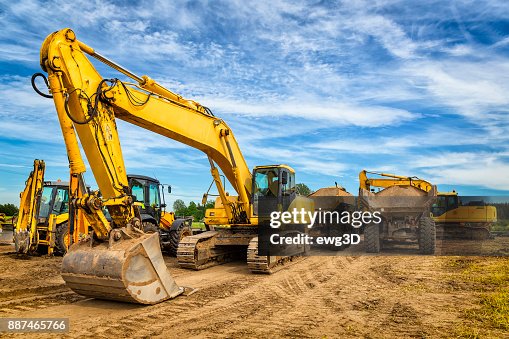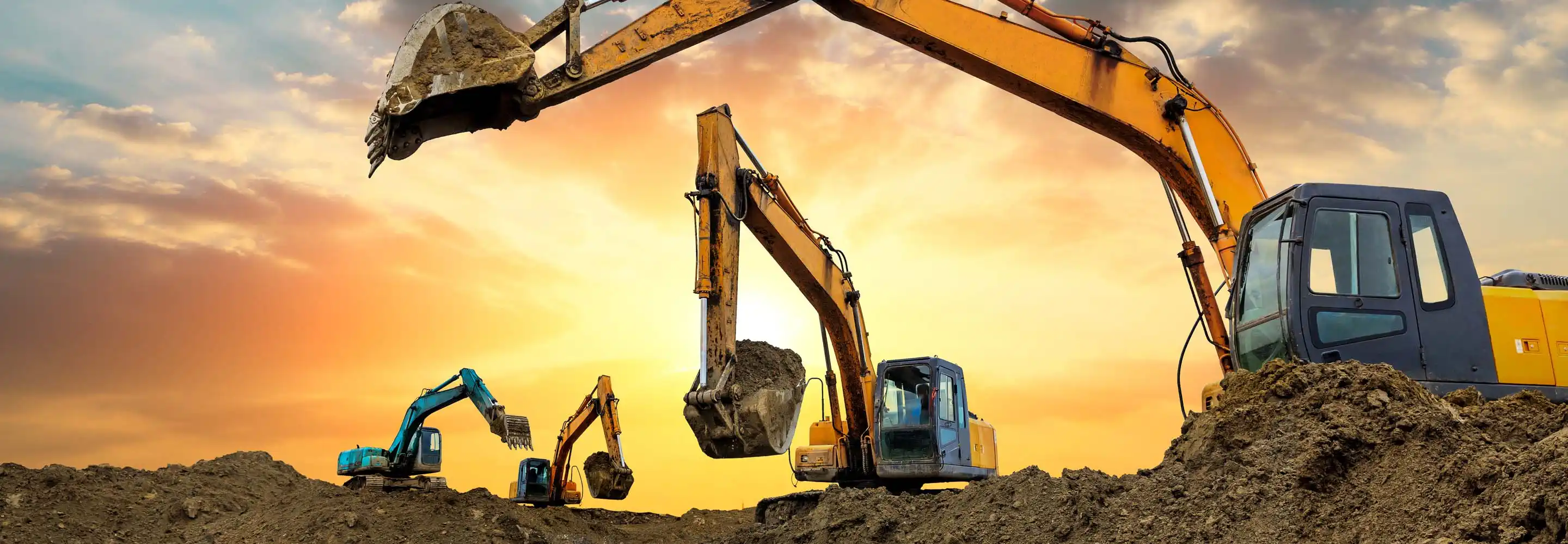Scissor Lift Rental in Tuscaloosa AL: Safe and Efficient Raising Solutions
Scissor Lift Rental in Tuscaloosa AL: Safe and Efficient Raising Solutions
Blog Article
Discovering the Financial Benefits of Renting Building Devices Compared to Owning It Long-Term
The decision in between renting and owning building tools is critical for financial management in the industry. Renting offers instant price financial savings and operational flexibility, allowing business to allocate sources a lot more efficiently. In comparison, possession features considerable lasting economic commitments, including maintenance and devaluation. As service providers weigh these alternatives, the effect on capital, job timelines, and technology gain access to ends up being progressively considerable. Recognizing these nuances is necessary, especially when thinking about just how they line up with particular task needs and economic techniques. What factors should be focused on to guarantee ideal decision-making in this facility landscape?

Price Contrast: Renting Vs. Owning
When assessing the economic implications of renting versus having building and construction equipment, a thorough cost contrast is essential for making notified choices. The option in between owning and renting can considerably affect a firm's lower line, and recognizing the linked costs is essential.
Leasing building and construction equipment commonly involves lower upfront costs, allowing companies to assign funding to other functional needs. Rental contracts frequently consist of flexible terms, allowing companies to access progressed equipment without long-lasting commitments. This versatility can be especially useful for temporary projects or fluctuating work. However, rental expenses can gather gradually, potentially going beyond the expense of possession if devices is required for a prolonged duration.
Conversely, owning building equipment needs a considerable preliminary financial investment, together with recurring expenses such as devaluation, insurance, and financing. While ownership can bring about lasting savings, it likewise connects up funding and might not give the very same level of flexibility as leasing. Additionally, owning devices requires a dedication to its use, which might not always line up with project demands.
Ultimately, the decision to lease or own must be based on a detailed analysis of particular job demands, monetary capacity, and long-lasting tactical objectives.

Maintenance Expenses and Obligations
The option in between leasing and having construction devices not only includes financial considerations however additionally includes ongoing upkeep expenses and obligations. Owning tools needs a significant dedication to its maintenance, which consists of routine assessments, repairs, and potential upgrades. These obligations can quickly accumulate, resulting in unforeseen costs that can strain a budget plan.
On the other hand, when renting out equipment, upkeep is typically the duty of the rental business. This arrangement allows specialists to stay clear of the financial problem connected with wear and tear, in addition to the logistical challenges of organizing fixings. Rental contracts frequently consist of provisions for maintenance, meaning that contractors can concentrate on finishing jobs as opposed to stressing concerning equipment problem.
Moreover, the varied series of equipment offered for rent enables companies to choose the newest models with advanced innovation, which can boost performance and performance - scissor lift rental in Tuscaloosa Al. By choosing services, companies can prevent the long-lasting responsibility of equipment devaluation and the associated maintenance frustrations. Eventually, assessing upkeep costs and responsibilities is critical for making an informed choice concerning whether to own or lease building tools, considerably affecting total task construction equipment rental companies prices and operational effectiveness

Devaluation Effect On Ownership

A considerable aspect to take into consideration in the decision to have building and construction equipment is the impact of devaluation on overall possession costs. Depreciation represents the decline in worth of the tools over time, affected by aspects such as usage, wear and tear, and improvements in modern technology. As devices ages, its market price diminishes, which can dramatically influence the owner's financial position when it comes time to market or trade the tools.
For construction companies, this devaluation can convert to substantial losses if the tools used in construction tools is not made use of to its fullest capacity or if it lapses. Proprietors need to make up depreciation in their financial estimates, which can lead to greater total costs contrasted to renting. Additionally, the tax implications of devaluation can be complicated; while it may offer some tax obligation benefits, these are typically offset by the truth of decreased resale worth.
Eventually, the concern of devaluation stresses the relevance of recognizing the long-term financial commitment associated with owning building and construction tools. Business have to very carefully evaluate exactly how typically they will utilize the devices and the prospective financial effect of depreciation to make an educated choice concerning ownership versus leasing.
Economic Flexibility of Leasing
Renting out building and construction tools offers substantial economic adaptability, allowing business to allocate resources much more successfully. This flexibility is specifically essential in an industry identified by changing task demands and differing work. By choosing to lease, businesses can stay clear of the substantial capital expense needed for purchasing equipment, maintaining cash money circulation for other operational requirements.
Additionally, leasing tools makes it possible for firms see this site to tailor their devices selections to details task needs without the lasting commitment connected with possession. This implies that businesses can easily scale their equipment inventory up or down based on present and anticipated project requirements. Subsequently, this versatility reduces the risk of over-investment in machinery that may become underutilized or outdated with time.
One more monetary benefit of renting is the possibility for tax obligation benefits. Rental settlements are typically thought about general expenses, permitting prompt tax obligation reductions, unlike depreciation on owned equipment, which is spread over numerous years. scissor lift rental in Tuscaloosa Al. This prompt expense acknowledgment can even more improve a business's money position
Long-Term Task Factors To Consider
When evaluating the long-lasting requirements of a construction company, the choice between leasing and possessing devices becomes more intricate. Secret elements to consider consist of job period, regularity of usage, and the nature of upcoming tasks. For jobs with extensive timelines, buying tools may appear helpful due to the capacity for reduced overall prices. However, if the tools will certainly not be used continually across projects, having might result in underutilization and unneeded expenditure on storage space, insurance coverage, and maintenance.
Furthermore, technical innovations present a substantial consideration. The building sector is advancing swiftly, with brand-new equipment offering improved performance and safety and security attributes. Leasing enables firms to access the latest innovation without devoting to the high ahead of time prices linked with getting. This versatility is especially useful for organizations that manage varied jobs calling for various sorts of equipment.
Furthermore, financial stability plays an essential duty. Owning equipment often involves considerable resources financial investment and devaluation issues, while leasing permits for more predictable budgeting and money circulation. Ultimately, the choice in between leasing and having must be aligned with the critical goals of the construction business, taking right into account both existing and awaited job needs.
Conclusion
In verdict, renting building and construction equipment offers significant monetary benefits over long-lasting possession. Ultimately, the choice to rent rather than very own aligns with the vibrant nature of building tasks, allowing for flexibility and accessibility to the latest tools without the monetary worries linked with ownership.
As equipment ages, its market worth lessens, which can substantially impact the proprietor's economic setting when it comes time to trade the tools or market.
Renting building and construction devices supplies significant monetary adaptability, allowing business to allocate sources more effectively.Additionally, renting out devices allows firms to customize their equipment selections to certain task needs without the lasting dedication connected with ownership.In conclusion, renting building and construction devices provides considerable monetary advantages over lasting possession. Ultimately, the decision to lease instead than own aligns with the vibrant nature of building and construction projects, enabling for versatility and accessibility to the most current equipment without the monetary worries associated with ownership.
Report this page